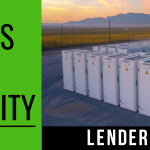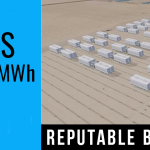
24M, currently thought to be one of the leaders in developing an advanced form of lithium-ion batteries which promise increased energy density, has struck a deal with Kyocera for initial production of cells for stationary storage applications.
Energy-Storage.news interviewed some of 24M’s leadership team in March this year, when the company, spun out of MIT’s labs by founder Yet-Ming Chiang, claimed to have exceeded an energy density of 350Wh per kilogramme for semi-solid lithium-ion battery cells.
While admitting that the technology is still at the early stages of its commercialisation journey, 24M said then that it is looking to establish a 100MW pilot production plant by the end of this year.
Kyocera, headquartered in Japan’s old capital, Kyoto, and known for its historic production of ceramic goods and latterly high tech products for a range of markets including solar PV, is already an investor in the US start-up. 24M said in a release on Friday that Kyocera is now constructing production facilities for pilot production of cells, aimed at the residential solar-plus-storage market, which is rapidly growing in Kyocera’s home country. The pilot production line is in Osaka, in the west of Japan and home city to many of the country’s battery big-hitters, including Panasonic and Sanyo Maxcell.
“Kyocera considers the unique 24M SemiSolid approach the emerging standard for lithium-ion battery manufacturing. The ability to cost-effectively manufacture advanced lithium-ion batteries can enable Kyocera to expand residential sales throughout Japan,” Kyocera senior executive officer Masahiro Inagaki.
Taking lithium into advanced and long duration territory
In an in-depth interview with this site at the time of that March announcement, 24M’s execs including CEO Rick Feldt said that the ‘Dual Electrolyte’ tech the company has developed could be applied for manufacturing processes for different types of lithium-ion battery, including lithium iron phosphate (LFP) and nickel manganese cobalt (NMC).





